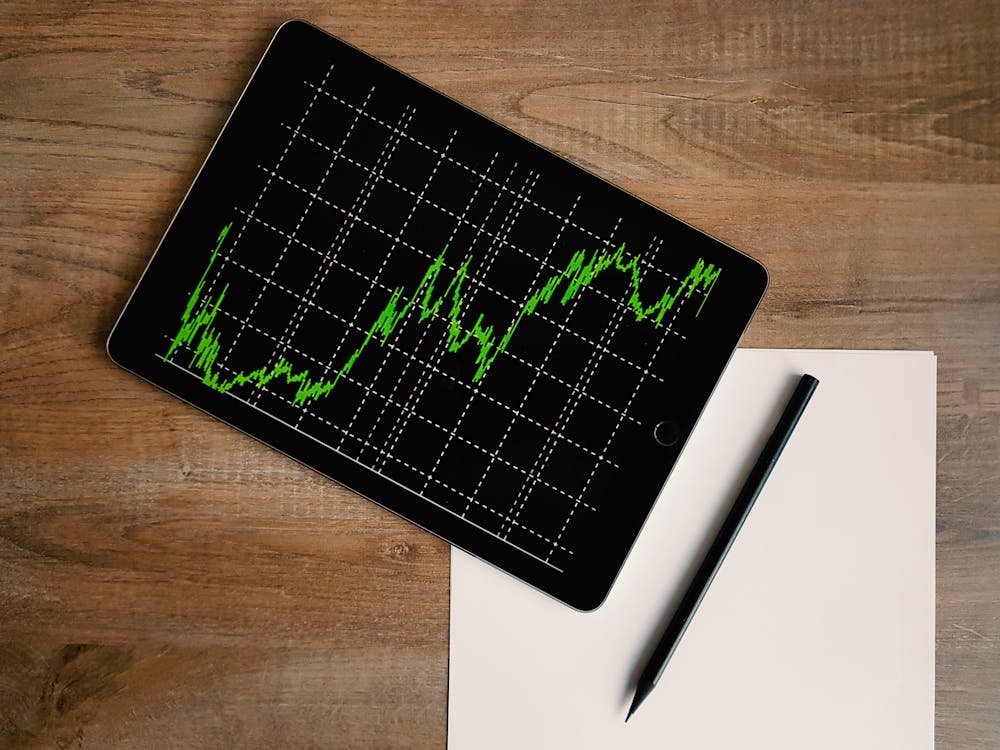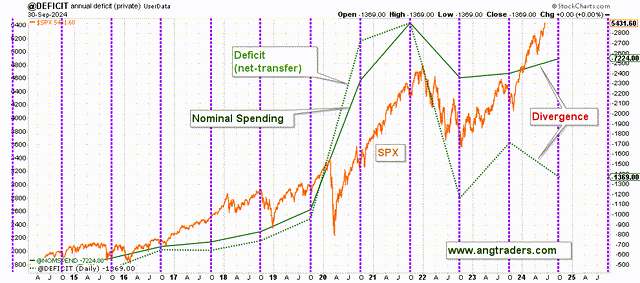There Is A Divergence In The Market

Image Source: Pexels
What Is Money?
Money is not a real "thing". A US dollar-bill represents a dollar, but it is not a dollar, in the same way that the deed to your house is not a house. Money is whatever we collectively agree can release real-resources like goods and services (materials and labour).
The US dollar is a law of Congress that says taxes can only be paid with US dollars and only the Government can create US dollars. Chartered banks are licensed to create loans which are 'temporary' money that must be paid back and cancelled, but money spent into existence by Congress does not have to be all taxed back and cancelled--some of it is left behind in the hands of the private-sector.
The US government is monetarily-sovereign, which means it creates its own money and and does not need an external source of US dollars. This makes its budget unlike a household-budget which requires an income. A "deficit" (more money created than is taxed back) in the Federal Government's budget, is not the same as a deficit in a household (private-sector) budget. The latter requires borrowing to cover the shortfall, but the currency-creating government has no need to borrow because it creates whatever amounts of currency it needs. (Note: the matching of deficits with the sale of bonds and bills is a policy CHOICE not a functional-requirement. It is a vestigial leftover from the gold-standard). The Federal Government deficit spending, is the private-sector surplus.
Federal Government Deficit = Private Sector Surplus
Fund-Flows and the SPX
When the Federal Government spends to provision society (buy goods and services from the private-sector), it gets the Central Bank (the Federal Reserve) to increase the number of US dollars in the bank accounts of the private entities that are selling the goods and services. Later, the government will tax back (and cancel) some of those dollars. The dollars that are not taxed back, remain in private hands and can be used to release real resources for the benefit of the private holders of that money. The "deficit" (and resulting "debt") that everyone worries about, is actually an accounting of the money that was net-transferred into private bank accounts, i.e. a private surplus.
The nominal-spending and the net-transfer (spending minus taxes) correlates strongly with movement in the SPX (chart below).

This year, so far, there has been a divergence as the net-transfers (dotted-line on the chart) decrease while the nominal-spending and the SPX increase, instead of the usual synchronization. The nominal-spending (currency-creation) is increasing, but the taxation is increasing even faster which means less money is being left behind in private bank accounts. Normally, this would cause weakness in the stock market, but so far, the nominal spending is carrying the day. Eventually, however, the net-transfer has to come back in line, or else growth will stall and the SPX would reflect that.
I'm still maintaining that the primary trend is strongly bullish because:
- We are in a presidential election year when spending is always increased.
- There is $6T sitting in Money Market Funds that will leak back into stocks when the Fed starts to cut rates (even though lower rates, without at the same time increasing spending, would lower the net-transfers even further).
- The infrastructure programs (like the Chips Act) are only just starting to spend and will continue to spend for several years.
- War funding is increasing.
- Bank credit has lots of room to contribute to market liquidity.
Despite this divergent anomaly, the bull market continues to be the primary trend. The leading-flow of Government spending is sufficient to float the market for the next 6-months.
More By This Author:
The Bull Market Is Still On, But ...
Expect Weakness In The Market - Our Models Were Right.
The Tax Season Will Combine With Other Factors To Weaken Stock Prices



